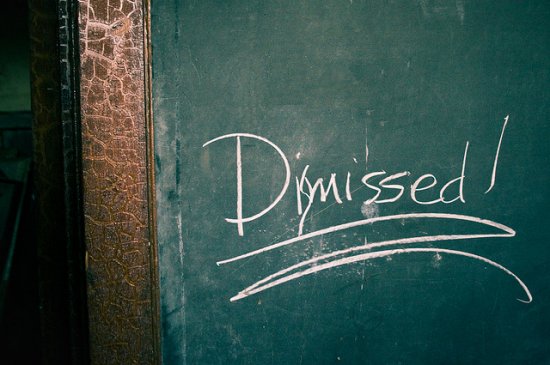
Voluntary Versus Involuntary Dismissal
Voluntary dismissal is when you request that your case be dismissed. You might ask for a dismissal if you decide that filing bankruptcy was a mistake or other issues crop up. An involuntary dismissal occurs against your wishes if you fail to meet the legal requirements for bankruptcy or fail to submit required documents such as tax returns. Below is more detailed information on voluntary and involuntary dismissal by bankruptcy chapter.
Chapter 7 and Chapter 13 Involuntary Dismissal
Here are some of the usual reasons that either a Chapter 7 or Chapter 13 bankruptcy could be dismissed involuntarily:
- You fail to complete required bankruptcy credit counseling
- You provide inaccurate information as part of your bankruptcy petition
- You fail to pay required court fees
- You didn't attend your 341 Meeting of Creditors
- You failed to provide tax returns or payroll documents
Chapter 7 and Chapter 13 Voluntary Dismissal
To obtain a Chapter 13 voluntary dismissal, you can submit a letter to the court (or have your attorney do so) asking for the dismissal. There's no reason it should not be granted. With a Chapter 7, though, you may not be able to obtain a dismissal because the process moves so fast. It will be left up to the judge whether or not to dismiss your case. Here are some reasons that bankruptcy filers may request a voluntary dismissal:
- You decide that filing isn't a good idea for personal reasons
- You find you have income or assets to cover your debts
- You find some assets will not be protected by exemption
- You find out the debts you most need discharged are ineligible (such as income taxes)
Can You Refile Bankruptcy After a Dismissal?
What matters is whether the case was dismissed with prejudice or without prejudice. A dismissal without prejudice means you are free and clear to file another bankruptcy immediately. This can occur if you don't complete some needed actions and you need to get these straightened out then want to pursue bankruptcy relief again. Usually, your dismissal will be issued without prejudice if:
- You fail to file requested forms or provide supporting documents
- You missed a court hearing like the 341 Meeting or a confirmation hearing
- You don't pay required court filing fees or your Chapter 13 plan payments
- You don't meet eligibility requirements for that bankruptcy chapter
- You don't complete your required credit counseling
- Hide assets, conceal income or otherwise lie in your bankruptcy filing
- Violate court orders or abuse bankruptcy protections to your benefit
